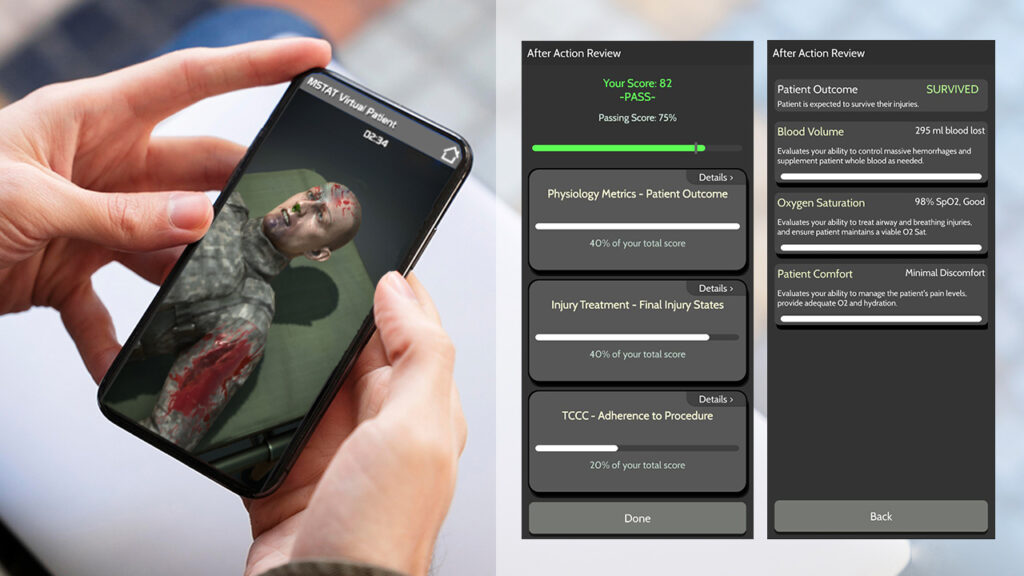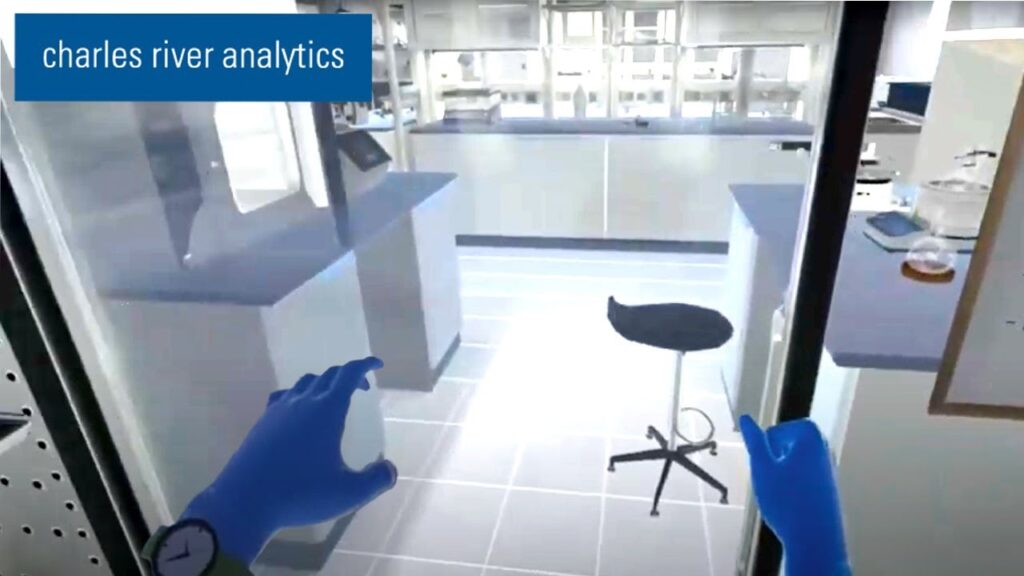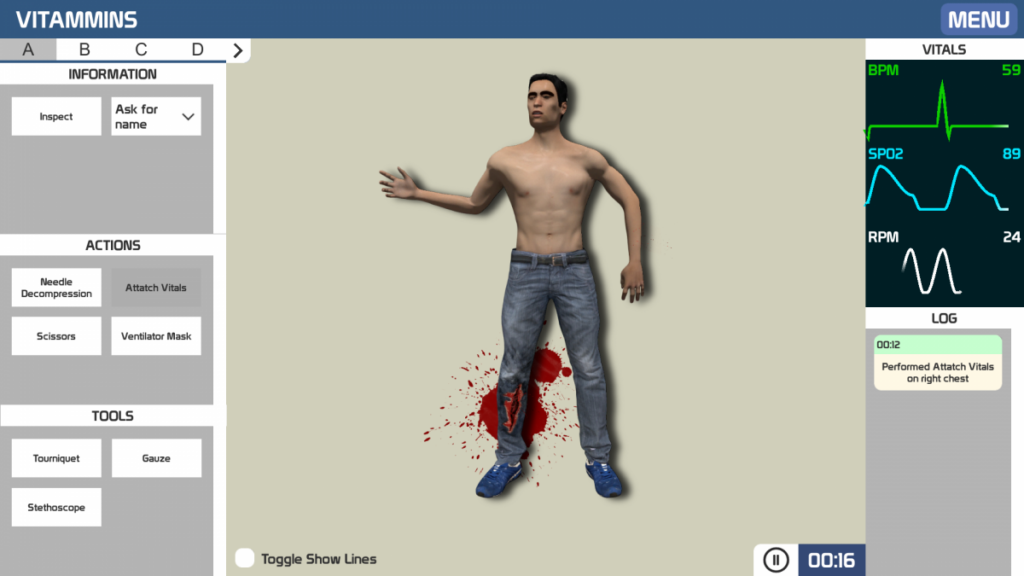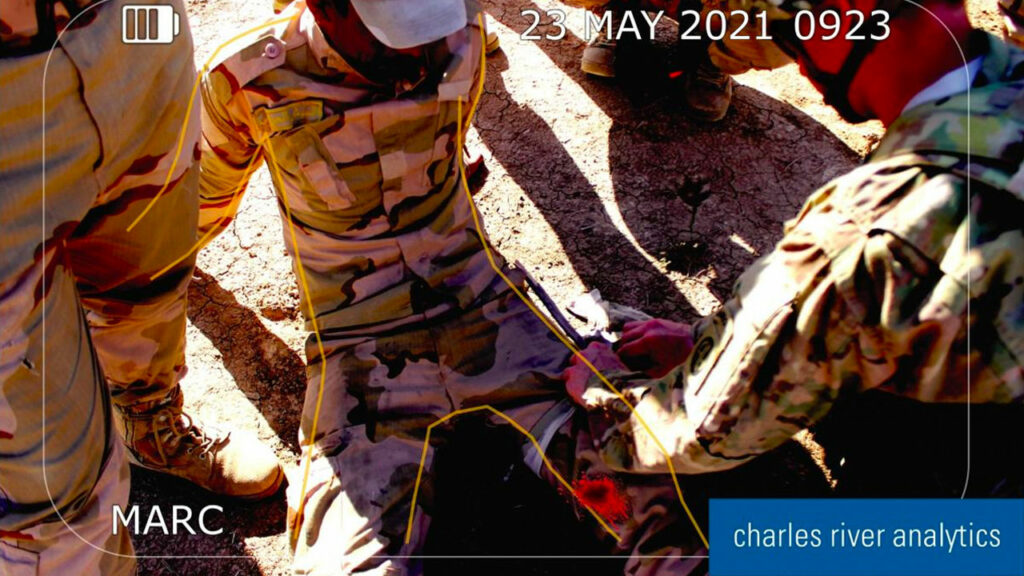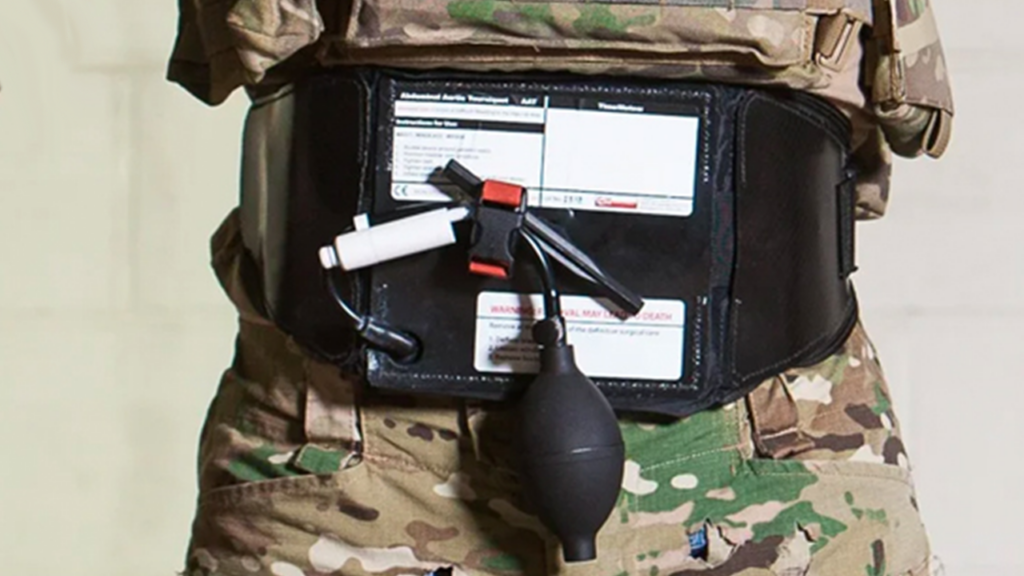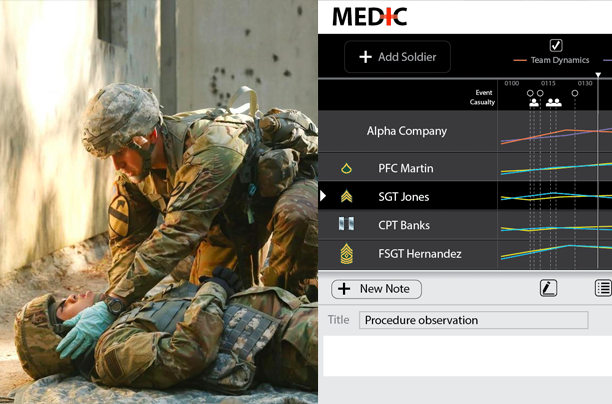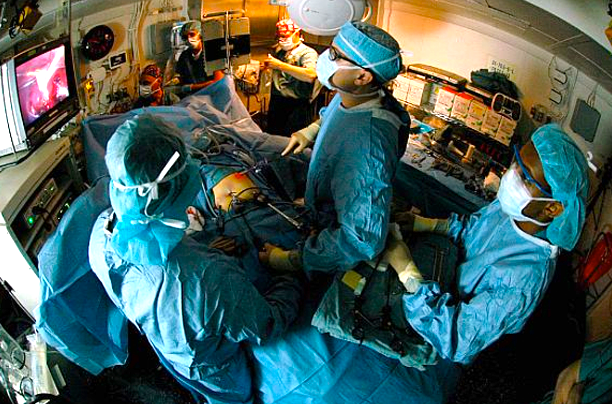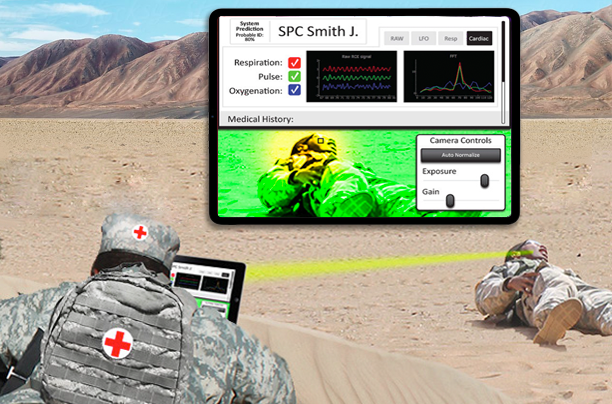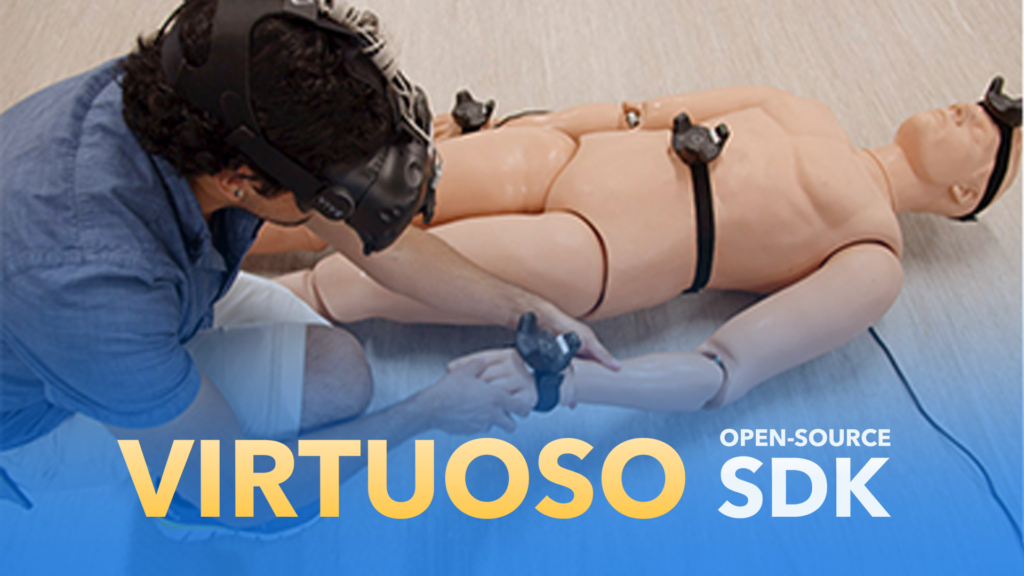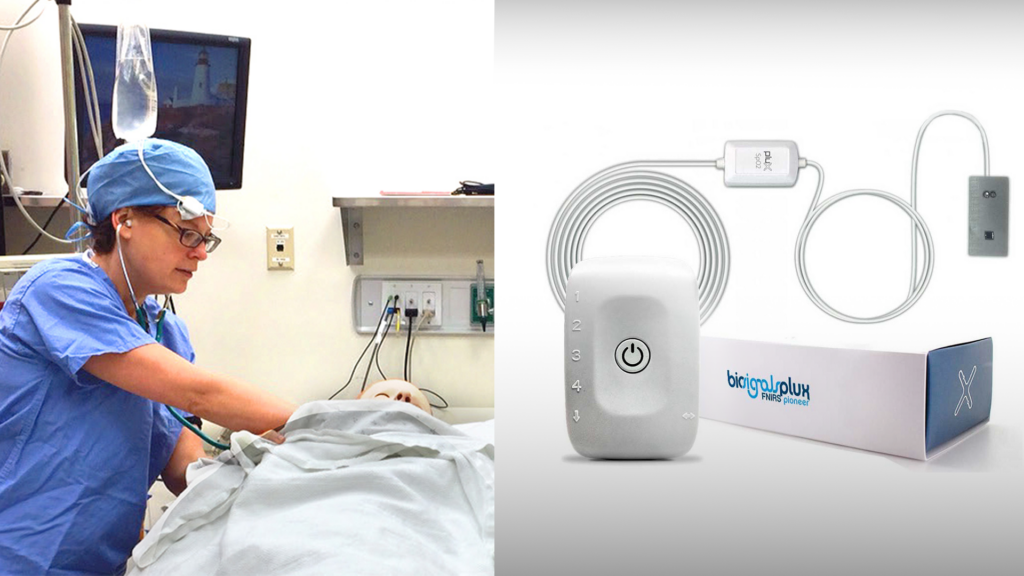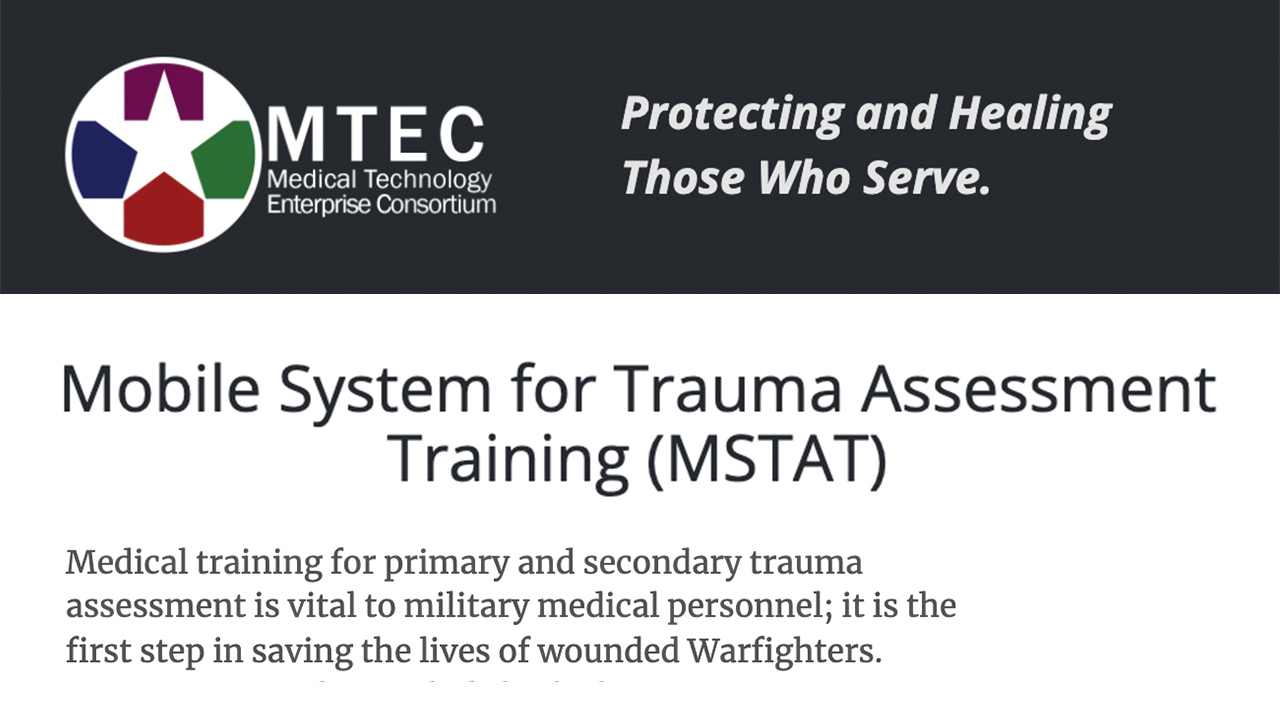Medical Training
Bridging the gap between classroom learning and real-world experiences
Bridging the gap between classroom learning and real-world experiences
Charles River Analytics offers virtual training applications to develop medical skills, systems that measure trainee performance within training systems, as well as research and enabling tech that can support and enhance any training program.
Our immersive applications place trainees in gamified environments that realistically simulate real-world experiences, reducing the cost of training equipment, development, and maintenance.
Our tools measure physiological signals and cognitive workload to dynamically adapt the curriculum to each trainee.
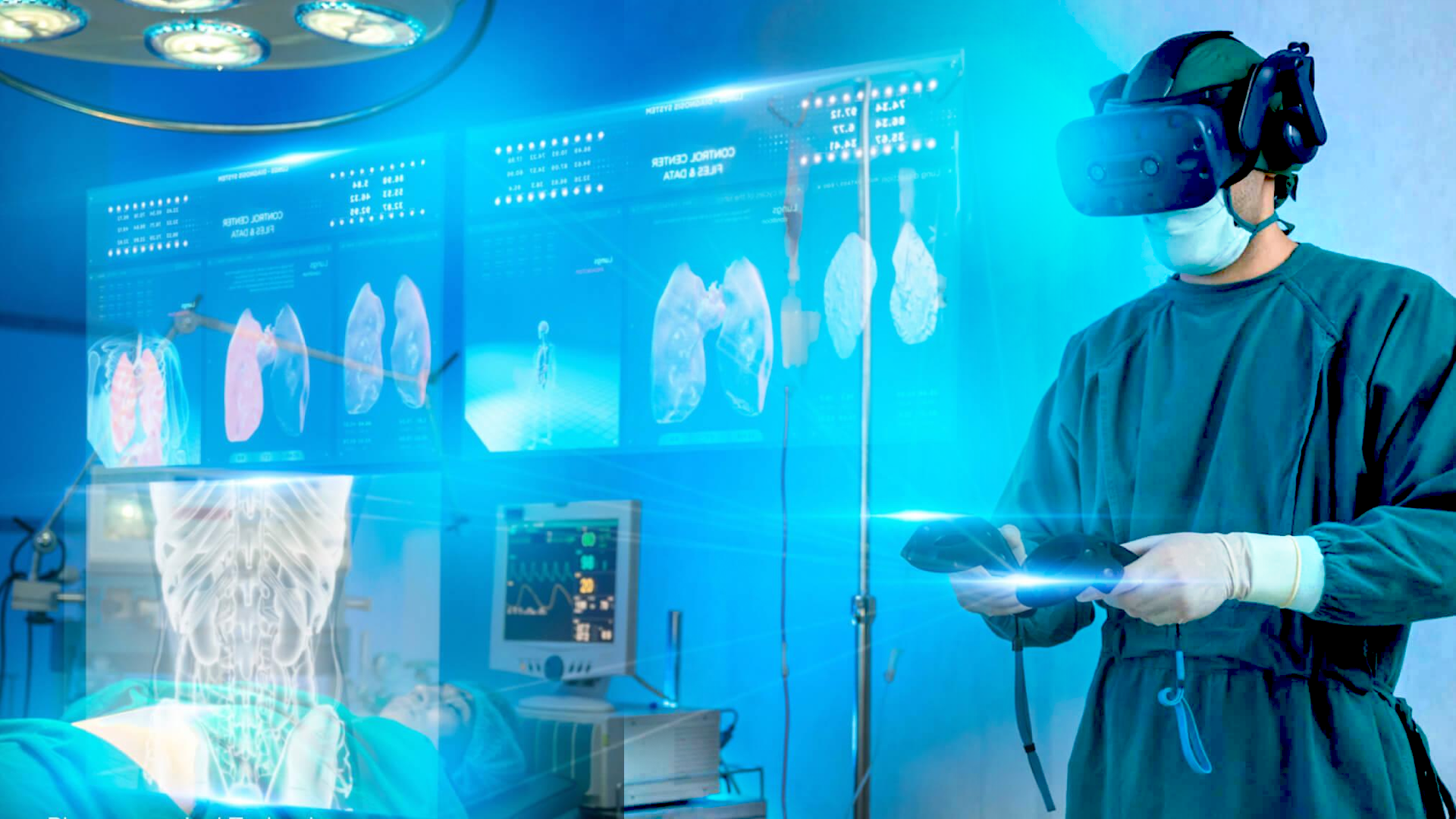
Our Approach
Listen to Dr. James Niehaus, Principal Scientist, explain our unique approach to adaptive intelligent training.
Adaptive intelligent training optimizes the learning process by customizing content to the unique needs of the trainee. With our AI algorithms, training evolves to be more efficient over time, reducing costs and improving skill levels across your organization. Our training platforms empower the individual and the organization to deliver peak performance.
Skills Training
Our skills training applications immerse trainees in realistic 3D gamified environments developed in the latest game engines (Unity, Unreal Engine) with or without virtual and augmented reality interactions. Our programs can target specific skills, such as tourniquet application, to more general skills, such as trauma injury diagnosis and treatment.
Comprehensive virtual training system for mass casualty response, far forward medical care, incident command, and scene management
MSTAT (now part of EFECTIVE Mobile)
Individualized, mobile-based training for first responders to practice trauma treatment skills on virtual patients
Affordable, VR-based biosafety and biosecurity training for public health professionals
Virtual, adaptive, intelligent tutoring system to improve the quality and efficiency of military medical skill training
AR-based training system to improve the realism, quality, and accuracy of Tactical Combat Casualty Care training
Scenario-based practice for hemorrhage-control techniques
Training Optimization
Our tools measure physiological signals and cognitive workload to dynamically adapt the curriculum to meet each trainee’s needs, letting them hone the skills they need most.
System designed to augment performance observations and assist trainers by sensing indicators of cognitive workload in trainees
Training system to refresh laparoscopic surgical skills
Non-contact system that unobtrusively measures physiological signals to use for health and psychological state assessment
Training tool to improve battlefield first-aid skills
Enabling Technology
Flexible software development kit for ecologically valid AR/VR training
Platform that supports the rapid prototyping of solutions that measure and track physiological, neurological, and behavioral states
Miniaturized, portable fNIRS sensors to wirelessly track cognitive state by measuring visible and infrared light reflectance in cortical tissue

Our suite of adaptive
intelligent training solutions
KWYN technologies put AI into your training program to accelerate skills acquisition and retention.
News from Charles River
Publications
Performance Assessment in a Virtual Simulation for Integrated Austere Medical Operations Training
Read More
Designing Serious Games to Train Medical Team Skills
Read More
Evaluation of a New Functional Near Infrared Spectroscopy (fNIRS) Sensor, the fNIRS Explorer™, and Software to Assess Cognitive Workload During Ecologically Valid Tasks
Read More
Press
People
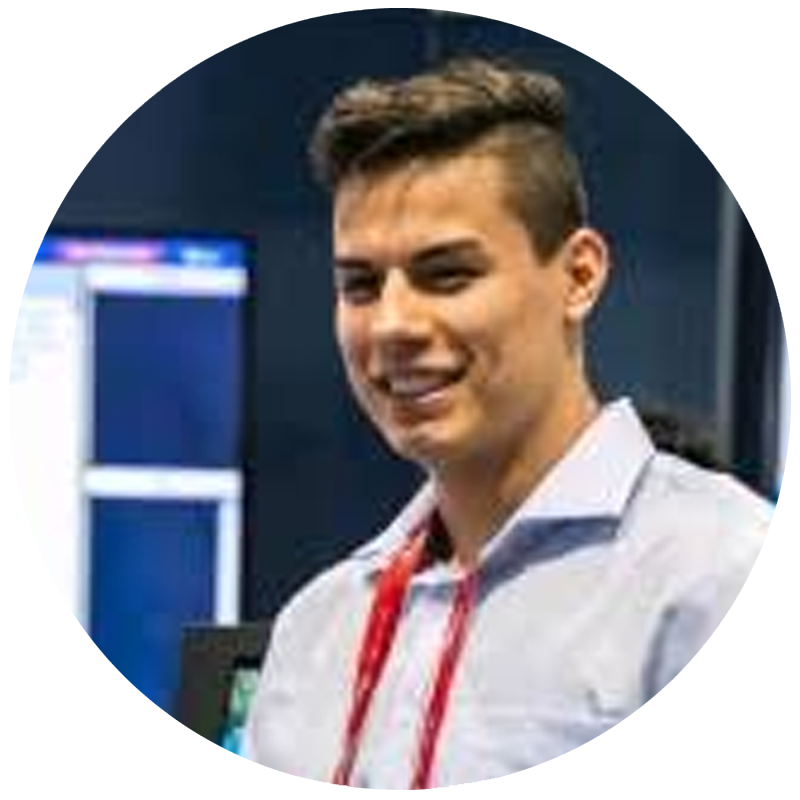

Dr. Spencer Lynn
Senior Scientist
Human-Centered AI
Dr. Spencer Lynn
Senior Scientist, Human-Centered AI
Spencer Lynn, Ph.D., is a Senior Scientist at Charles River Analytics with 25 years of experience conducting cognitive science research on perception, decision, and behavior of humans and other animals and building computational models of those processes. His research uses principles of behavioral ecology and neuroscience to create biologically inspired cognitive architectures and autonomous agents. His work focuses on development of technology that applies evidence-based, computational modeling of cognitive and behavioral processes to human-machine teaming, situation awareness, and operational readiness. Dr. Lynn received his Ph.D. in Ecology and Evolutionary Biology from University of Arizona. Prior to joining Charles River, Dr. Lynn was a professor of Psychology at Northeastern University.
James Niehaus
Principal Scientist,
Division Director
James Niehaus Principal Scientist and Director
Dr. Niehaus specializes in the computational modeling of narrative. As the principal investigator for multiple efforts to develop new training technologies, Niehaus has developed game-based training and virtual coaches for a wide range of audiences; investigated the neural, cognitive, and behavioral relationship between implicit learning and intuition; and worked on social robots for Alzheimer’s patients.With more than 15 years’ experience applying AI to training systems and instructional design, Niehaus is a highly valued mentor and collaborator for other Charles River scientists and engineers, contributing to a variety of virtual and adaptive systems for medical training. He’s also worked on narrative generation projects, cultural interaction with virtual agents, and cognitive models of discourse comprehension.Niehaus has a B.S. in computer science from the College of Charleston and a Ph.D. in computer science from North Carolina State University. He is a member of the Society for Simulation in Healthcare and of the National Training and Simulation Association. His extensive publications list includes “Designing Serious Games to Train Medical Team Skills” (with Ashley McDermott and Peter Weyhrauch), “Applications of Virtual Environments in Human Factors Research and Practice” (co-author), and “Development of Virtual Simulations for Medical Team Training: An Evaluation of Key Features” (with Ashley McDermott, Peter Weyhrauch, et al.)
Peter Weyhrauch
Vice President,
Human-Centered AI
Peter Weyrauch
Vice President, Human-Centered AI; Principal Scientist
Peter leads Charles River’s Human-Centered AI division, which combines expertise in cognitive systems engineering, user interface design, artificial intelligence (AI), simulation-based training and analysis, and software development to successfully integrate human operators with complex technologies.
Peter also oversees the company’s efforts in healthcare support and training, for preparing and providing decision support to clinical providers and healthcare organizations. Peter’s primary research interests include simulation-based medical training, models of human performance, artificial intelligence, as well as scenario generation and computational narrative, a field which he helped to pioneer almost thirty years ago. He earned a BS in Computer Science and Engineering and a BS in Mathematics from the Massachusetts Institute of Technology, and an MS and a PhD in Computer Science from Carnegie Mellon University.

Alex Gee
Principal Software Engineer



